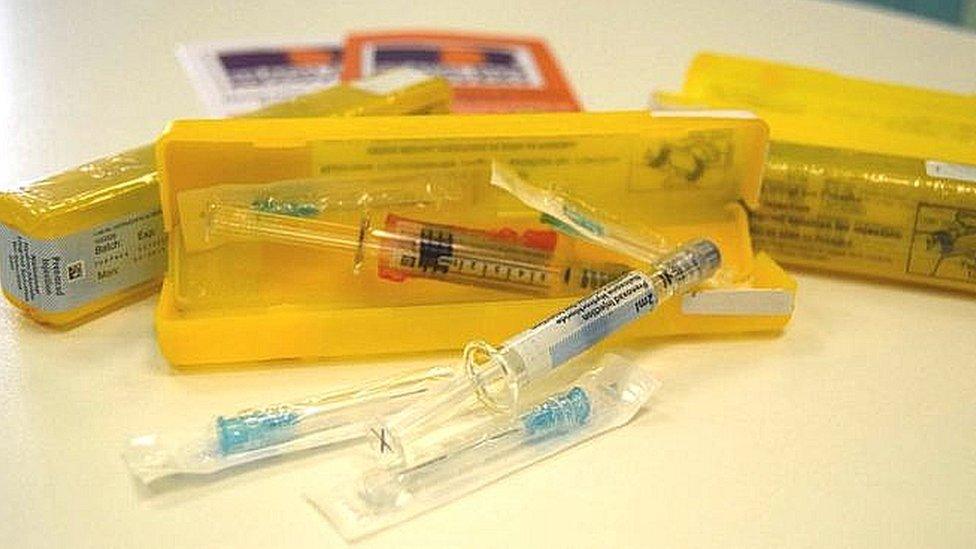Naloxone: Police to carry emergency drug overdose spray
- Published
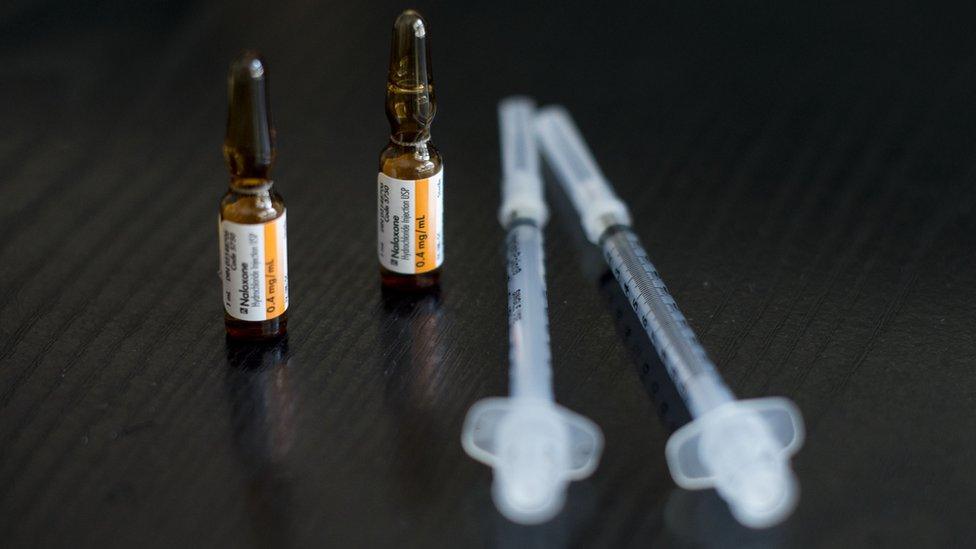
Naloxone can be administered by syringe or nasal spray to counter the effects of a drug overdose
An emergency antidote to treat drug overdose victims will be carried by police officers in Scotland as part of a pilot project.
The nasal spray Naloxone counters the effects of overdoses from opioids such as heroin.
But the Scottish Police Federation has criticised the project as a "sticky plaster initiative".
The trial will run for six months in the east of Glasgow, Falkirk and Dundee.
Supporters of the initiative say it is being introduced in response to rising drug-related deaths in Scotland.
Latest available figures show there were 1,187 drug-related deaths in Scotland in 2018, the highest number since records began in 1996.
They argue Naloxone can provide extra time for the ambulance service to arrive and take over emergency medical treatment.
Assistant Chief Constable Gary Ritchie, head of drug strategy for Police Scotland, said the project would have a "significant impact" on communities.
He said: "There has been a great deal of careful consideration given as to whether our officers should carry Naloxone as an additional piece of equipment and consultation has taken place with a range of partners through the Naloxone Delivery Steering Group.
"In doing so, it is hoped the testbed areas will show the value of our officers carrying this treatment as an extension to the existing extensive first aid training already provided by the organisation.
"We are committed to being proactive in our approach to tackling problem drug use in our communities through harm reduction, as well as dispelling myths while upholding our ethos of keeping people safe in our local areas."
He said a "full evidence-based evaluation" of the project would help decide if it should be rolled out across Scotland.
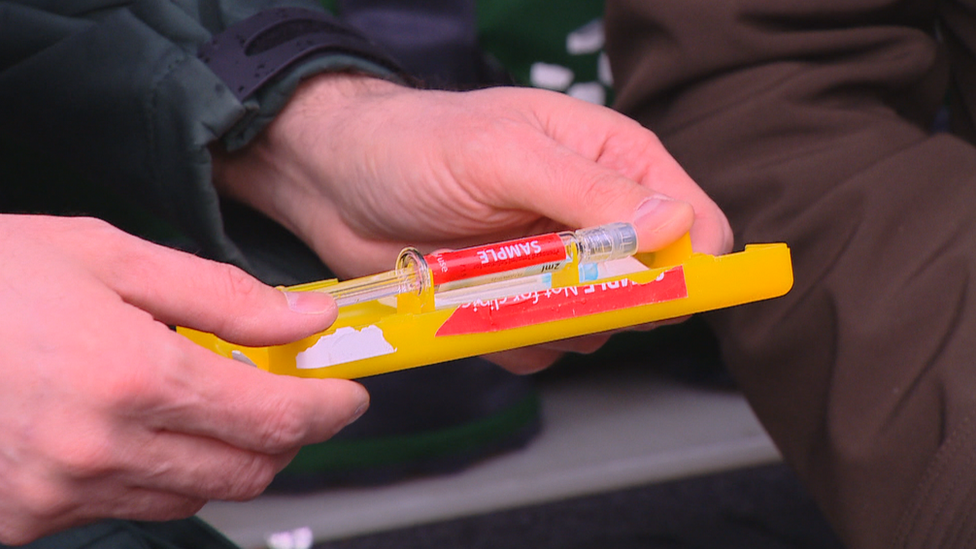
However, the Scottish Police Federation (SPF), which represents rank and file officers, said it was completely opposed to its members being asked to administer the drug.
SPF chairman David Hamilton said: "The number of drugs deaths in Scotland is a health calamity that needs urgent addressing but sticky-plaster initiatives like these divert resources from tackling the underlying problem.
"As the detail of this pilot has unfolded it is increasingly clear that this is a public relations exercise and has nothing to do with saving lives.
"Nobody in the UK has died as a consequence of a police officer not carrying Naloxone, people have however died as a consequence of being given Naloxone."
The SPF said it feared the role of the police officer was being stretched too far, and it also raised concern about safety during the Covid pandemic.
Earlier this year it emerged that the families of heroin user who are at risk of fatal overdoses were to be trained in using Naloxone by ambulance crews in Glasgow.
Paramedics in Scotland used more than 5,000 doses of Naloxone in 2019, according to the Scottish Ambulance Service.
Figures from the National Records of Scotland, external indicate opiates/opioids were implicated in, or a potential contributory factor in, 86% of drug related deaths in 2018.
Carrying Naloxone will be voluntary but all frontline police officers of the rank of constable, sergeant and inspector within the pilot areas will be required to undertake a training and education session.
After the session, which will provide instruction on using the spray, officers will be asked to decide whether they wish to carry Naloxone and participate in the pilot project.
If they do, they will then be provided with personal issue supplies of Naloxone.
It is estimated about 700 officers will be trained to potentially participate in the scheme, with training expected to start in early 2021.
Police Scotland said the pilot project was the result of ongoing work with organisations to create a "holistic, sustainable approach" in tackling the issues relating to problematic drug use.
- Published14 February 2020
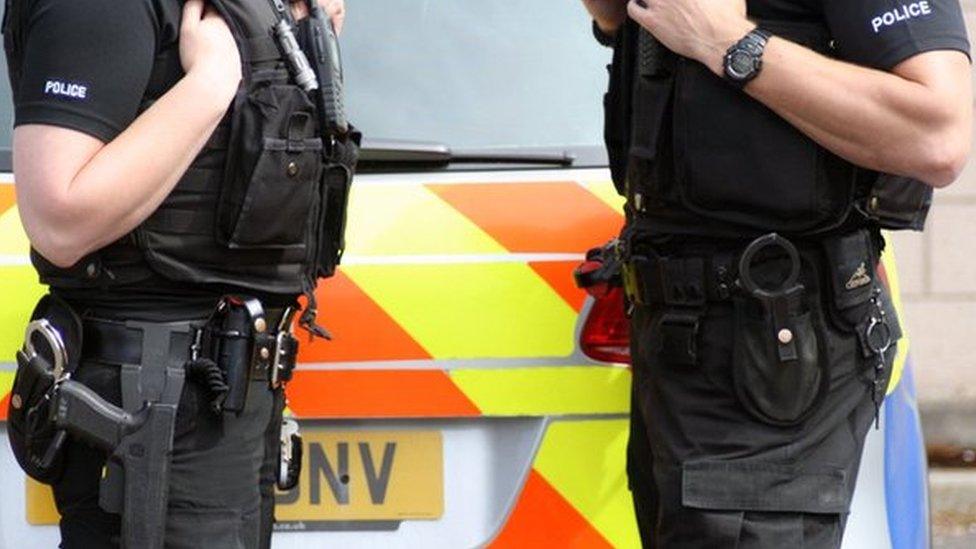
- Published29 January 2020
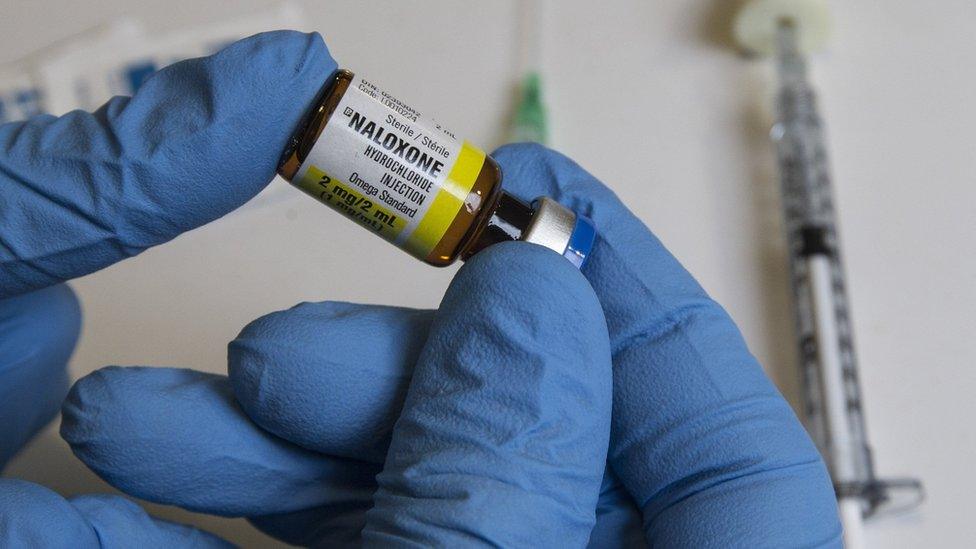
- Published16 July 2019

- Published25 October 2016
